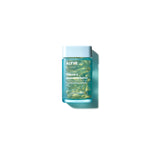Are you taking your vitamins regularly but not seeing any noticeable benefits? It can be frustrating when you’re investing time and money into your health, but not seeing the results you were hoping for. However, there are several factors that could be impacting the effectiveness of your supplements. Let’s take a closer look at each one.
Inconsistency Research shows that taking supplements inconsistently can have a significant impact on their effectiveness. A study published in the Journal of the American College of Nutrition found that individuals who took their multivitamin consistently over a period of four weeks saw improvements in their micronutrient status, while those who took it inconsistently did not see any significant changes.
Lifestyle Factors Your lifestyle can also play a role in how well your body absorbs and utilises nutrients from your supplements. For example, alcohol consumption can impair nutrient absorption in the gut, while smoking can increase the breakdown of certain vitamins in the body. Additionally, lack of sleep has been shown to decrease nutrient absorption and utilisation in the body.
Stress Stress is a major factor that can impact the effectiveness of your supplements. Chronic stress has been linked to increased inflammation in the body, which can decrease nutrient absorption and utilisation. Additionally, stress can affect the gut microbiome, which plays a crucial role in nutrient absorption.
Underlying Health Conditions Certain health conditions can also impact the effectiveness of your supplements. For example, individuals with celiac disease or other digestive disorders may have difficulty absorbing certain nutrients, even when taking supplements. Additionally, medications can interfere with nutrient absorption, and some health conditions may increase the body’s nutrient needs, making it more difficult to meet those needs through supplements alone.
Insufficient Dosage Lastly, it’s possible that you’re not taking a sufficient dosage of your supplements. Some vitamins and minerals require higher dosages to achieve the desired effect, and taking too little may not provide any noticeable benefits. For example, research has shown that taking high-dose vitamin D supplements can be effective in improving bone health, while lower doses may not have the same effect.
In conclusion, there are several factors that can impact the effectiveness of your supplements. Being consistent with taking them, paying attention to lifestyle factors such as sleep and stress, addressing underlying health conditions, and taking sufficient dosages can all contribute to better results. If you’re unsure about anything, consult with a healthcare professional for personalised advice.










